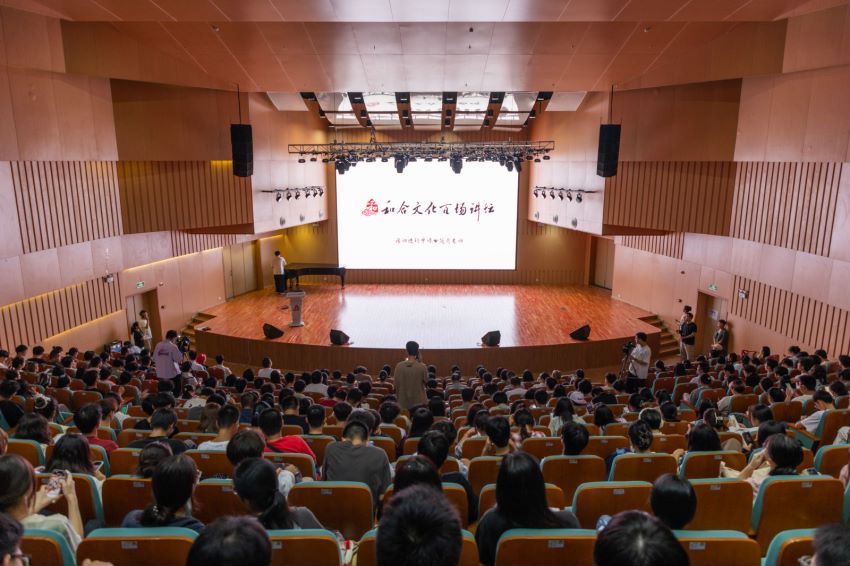
The 49th Hehe Culture Forum
The 49th Hehe Culture Forum was held in the Concert Hall of Jiaojiang Campus of TU in the evening of October 17. The event was jointly organized by the Publicity Department of the CPC Taizhou Municipal Committee, Taizhou Federation of Social Sciences, TU, and Taizhou News Media Center, with the assistance of TU’s Publicity Department and Humanities and Social Sciences Department. The event took the phenomenal domestic game “Black Myth: Wukong” as an entry point to discuss the brand-new opportunities for Hehe culture to go global from multiple perspectives, and the keynote speakers were all core members of TU’s Hehe Culture Team. Lou Danqun, Member of the CPC TU Committee and Secretary of the Discipline Inspection Committee of TU, Li Jianjun, Vice President and Member of the CPC TU Committee, Li Ling, Deputy Director of the Publicity Department of the CPC Taizhou Municipal Party Committee, Tang Tianwei, Vice Chairman of Taizhou Federation of Social Sciences, Huang Baocai, Vice Chairman of Taizhou Media Group Co., Ltd., Li Weiguo, Deputy Director of Taizhou News Media Center (Group), Cai Haijiang, Member of the CPC TU Committee and Director of the Publicity Department of TU, Zheng Lijun, Member of the CPC TU Committee and Director of the Personnel Department, as well as heads of relevant departments, schools, and scientific research institutions of the university attended the event. More than 300 teachers and students listened to the wonderful lectures. The event was hosted by Zhang Yi, host of Taizhou News Media Center.
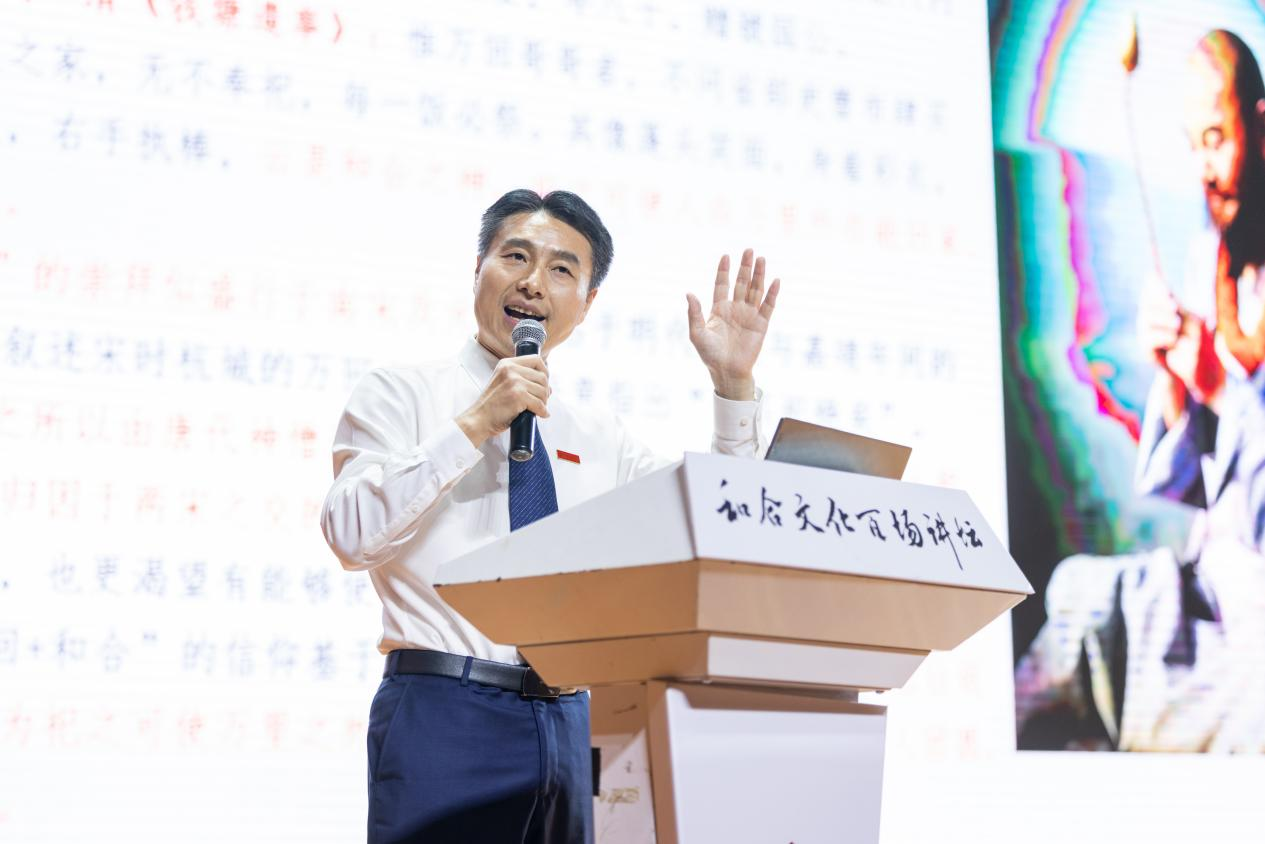
Prof. Li Jianjun delivers a lecture
Prof. Li Jianjun analyzed the philosophical interpretation of the idea of “Hehe (harmony)” and its contemporary connotation under the title of “Hehe Culture in the Exchanges and Mutual Learning between Chinese and Western Civilizations”. He discussed the cultural roots of Taizhou as the “Holy Land of Harmony” and the cultural inheritance value of the legends of Hanshan and Shide, and made a theoretical interpretation of the Taizhou Cultural Influence Enhancement Initiative. Prof. Li’s discussion penetrated the deep mechanism of Chinese and Western civilization exchanges and the practical path of local culture construction, and re-examined the positioning of traditional culture in the context of globalization.
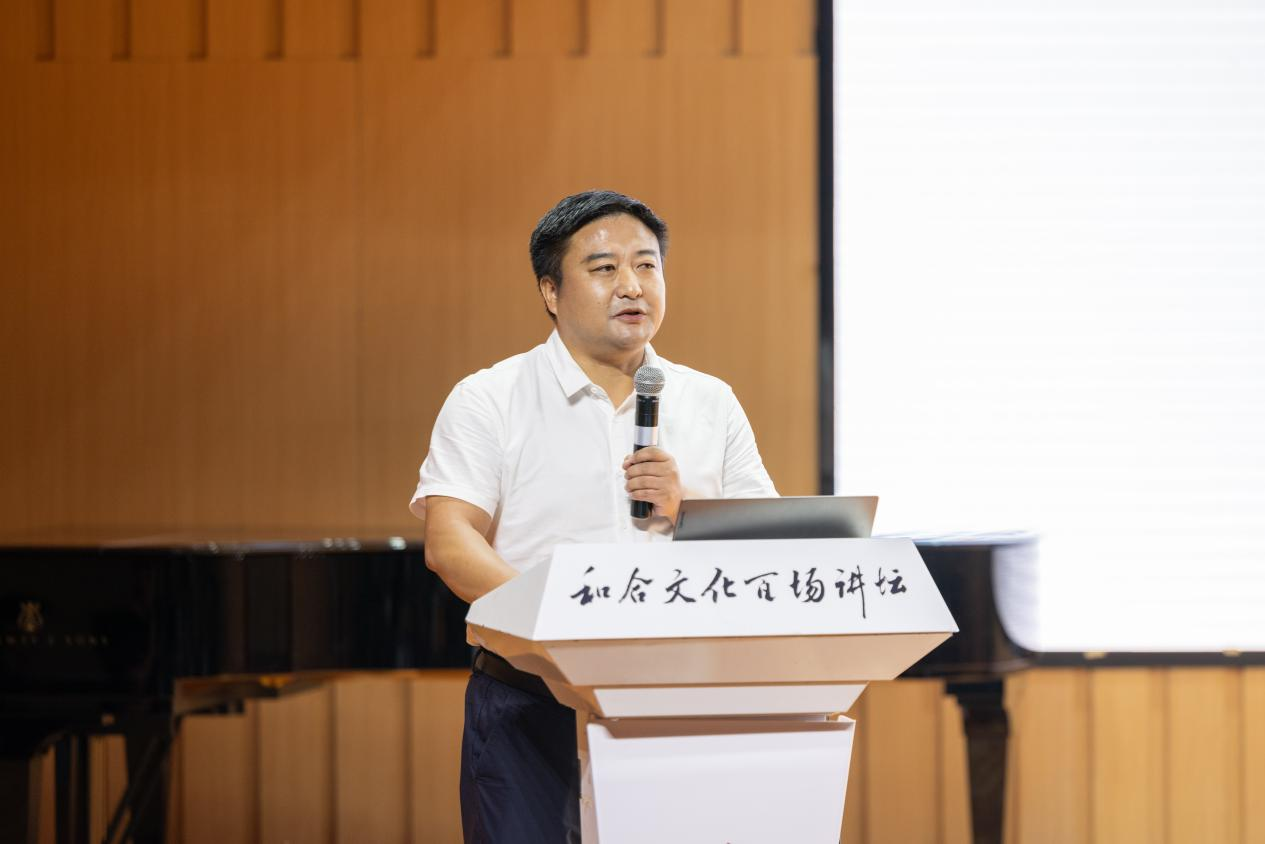
Prof. Gao Ping delivers a lecture
Prof. Gao Ping from TU’s Humanities and Social Sciences Department gave a lecture titled “From Journey to the West to the Black Myth: Wukong”, in which he summarized the historical evolution of the cultural IP “Journey to the West”. He pointed out that the novel Journey to the West is the crystallization of the multicultural fusion of Chinese and foreign cultures, and Black Myth: Wukong is the subsequent text based on it, which skillfully integrates traditional Chinese cultural elements such as philosophy, religion, literature and art with modern technology to create a fantasy world with oriental charm, setting a new model for Chinese harmony culture to go global.
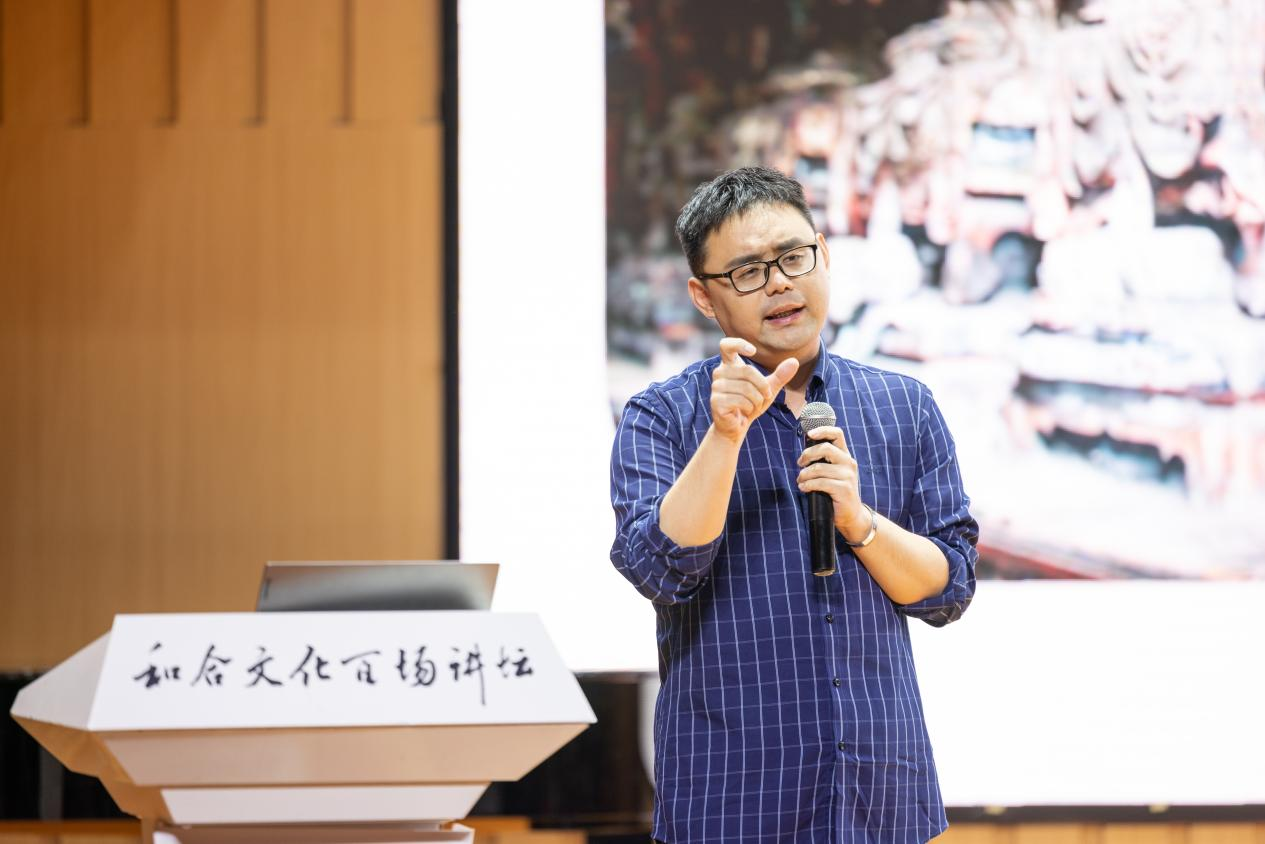
Dr. Su Chang delivers a speech
Dr. Su Chang from TU’s School of Marxism focused on “Buddhist Thought and Ancient Architecture of Shanxi in Black Myth: Wukong”. He analyzed the game’s ingenious use of Buddhist philosophical concepts such as “all the five skandhas are empty” and “the six roots are pure”, as well as the precise restoration of the Buddhist monuments in Shanxi, which highlights the integration of traditional Chinese architectural art and Buddhist culture.
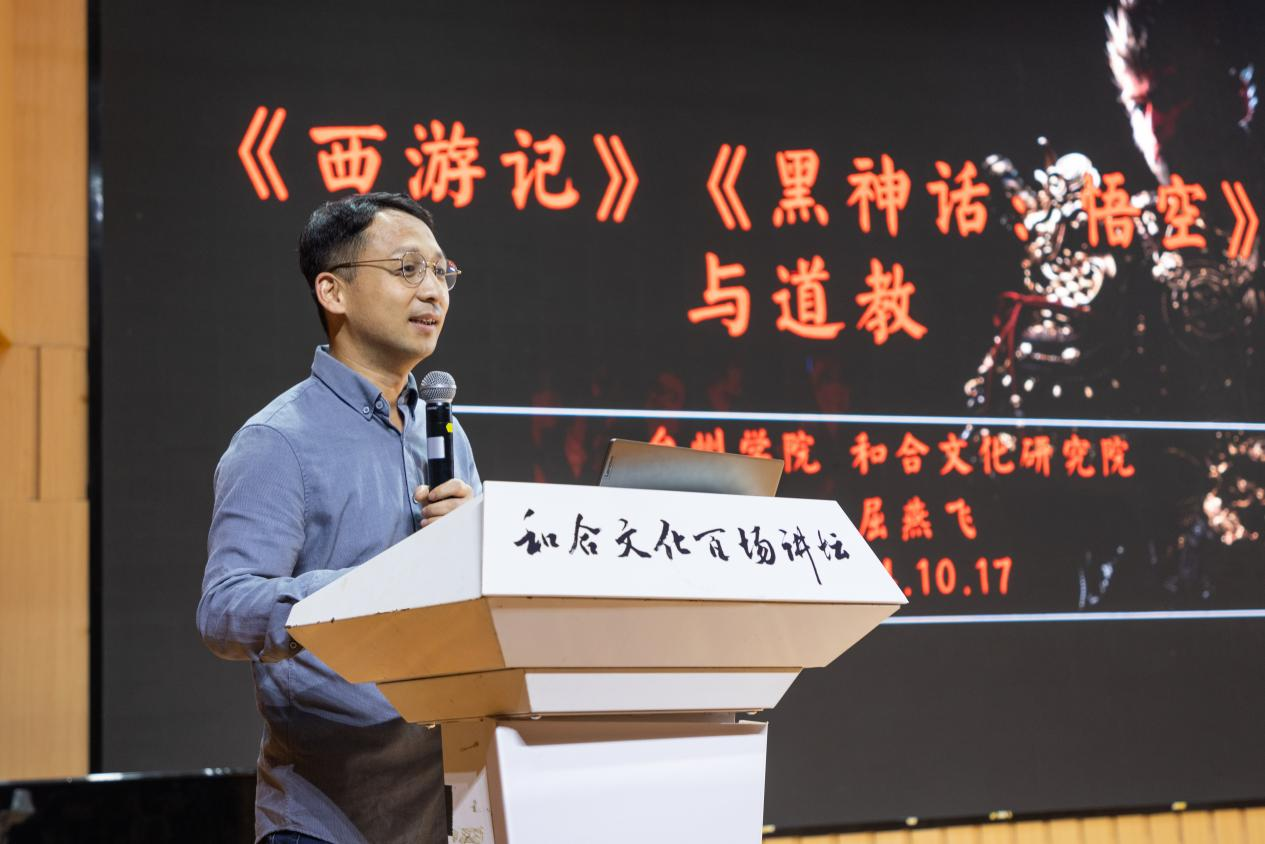
Dr. Qu Yanfei delivers a speech
Dr. Qu Yanfei, Associate Professor of TU’s Humanities and Social Sciences Department, explained the connection between Journey to the West, Black Myth: Wukong, and Taoism, emphasizing that the two works embody the “Immortal-Demon” confrontation model that is at the core of Taoism. He believed that the game’s innovative presentation of northern Shaanxi storytelling demonstrates the unending quality of traditional culture.
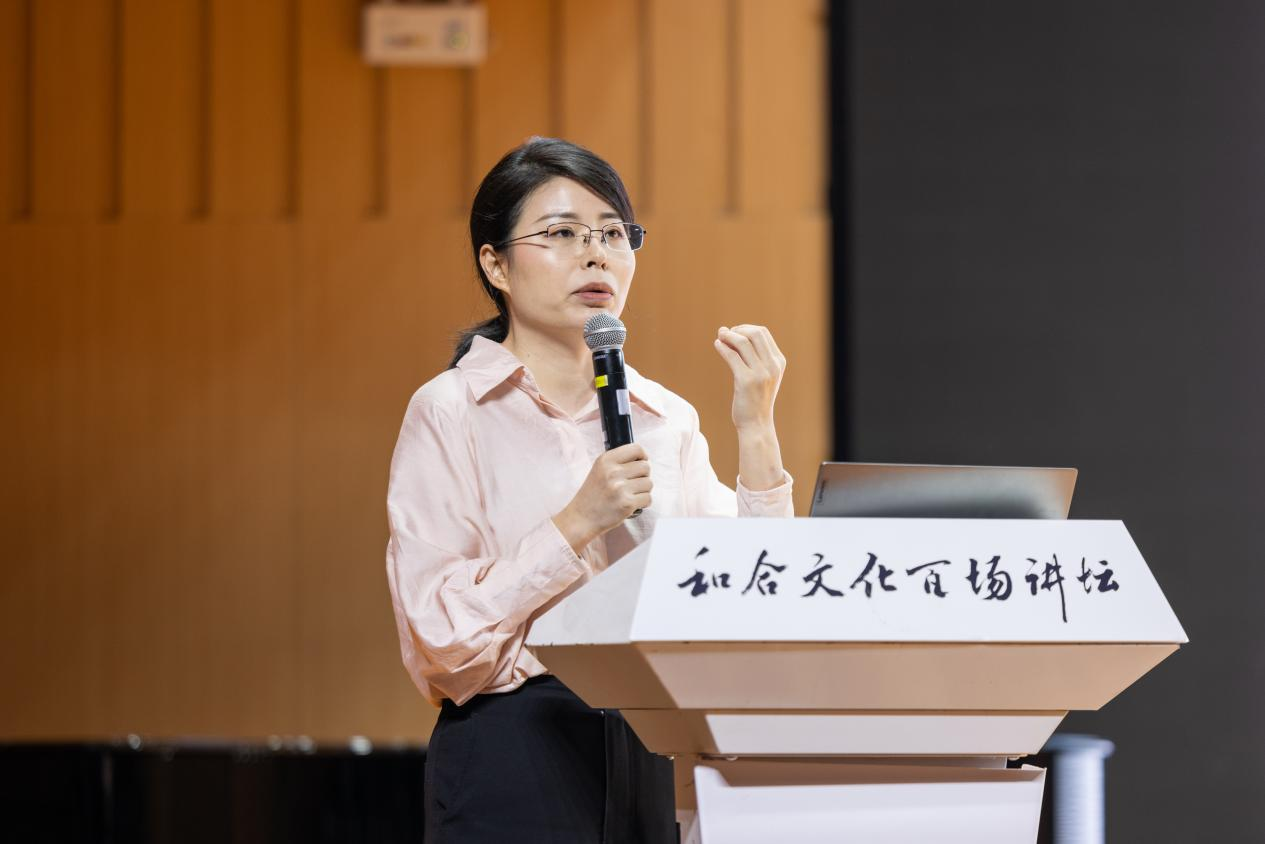
Dr. Wu Peiting delivers a speech
Dr. Wu Peiting, a teacher from TU’s School of Art and Design, held that the game music of Black Myth: Wukong adopts a variety of traditional ethnic instruments and combines modern music with local opera elements to create a unique game music style. The music sounds oriental and powerful, flashy but not flamboyant, harmonious but not uniformed, simple but not too complicated, and elegant but not too vulgar.
At the end of the speech session, Taizhou Kong Chunheng Famous Artist Studio gave a wonderful performance of the representative track “Wherever the Road Leads to” of Black Myth: Wukong.
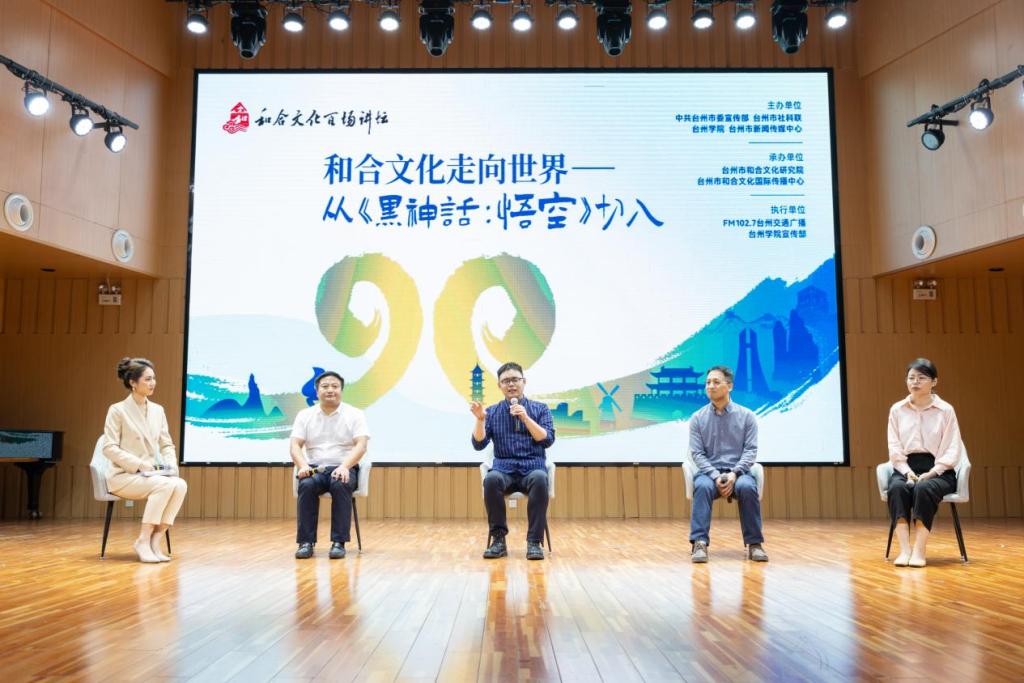
Five scholars talk over Hehe Culture
In the following session, five scholars discussed the connotation of Hehe Culture and its internationalization process. From the perspectives of philosophical thinking, textual analysis, music dissemination, business practice, and Taizhou experience, they provided new ideas for the inheritance and innovation of Hehe Culture, and the fusion of local roots and global vision, which enabled the audience to have a deeper understanding of Hehe Culture.

Hehe Culture Forum
Black Myth: Wukong demonstrates the modern application of the concept of ‘Hehe’, integrating the ideas of Confucianism, Buddhism and Taoism, traditional culture and modern technology, oriental elements and western game forms to create a unique cultural product. This kind of “harmonious but not uniformed” innovation opens up a new way for the internationalization of the cultural industry. Going-global of Chinese culture is a long-term and complex process that requires continuous research and innovation. The essence of Chinese culture needs to be explored further and the way of presentation in international exchange needs to be innovated so as to help Chinese culture enter the outside world with a more open and confident attitude.